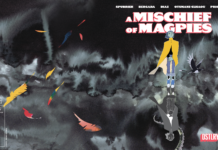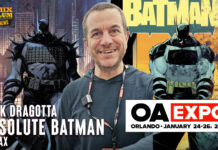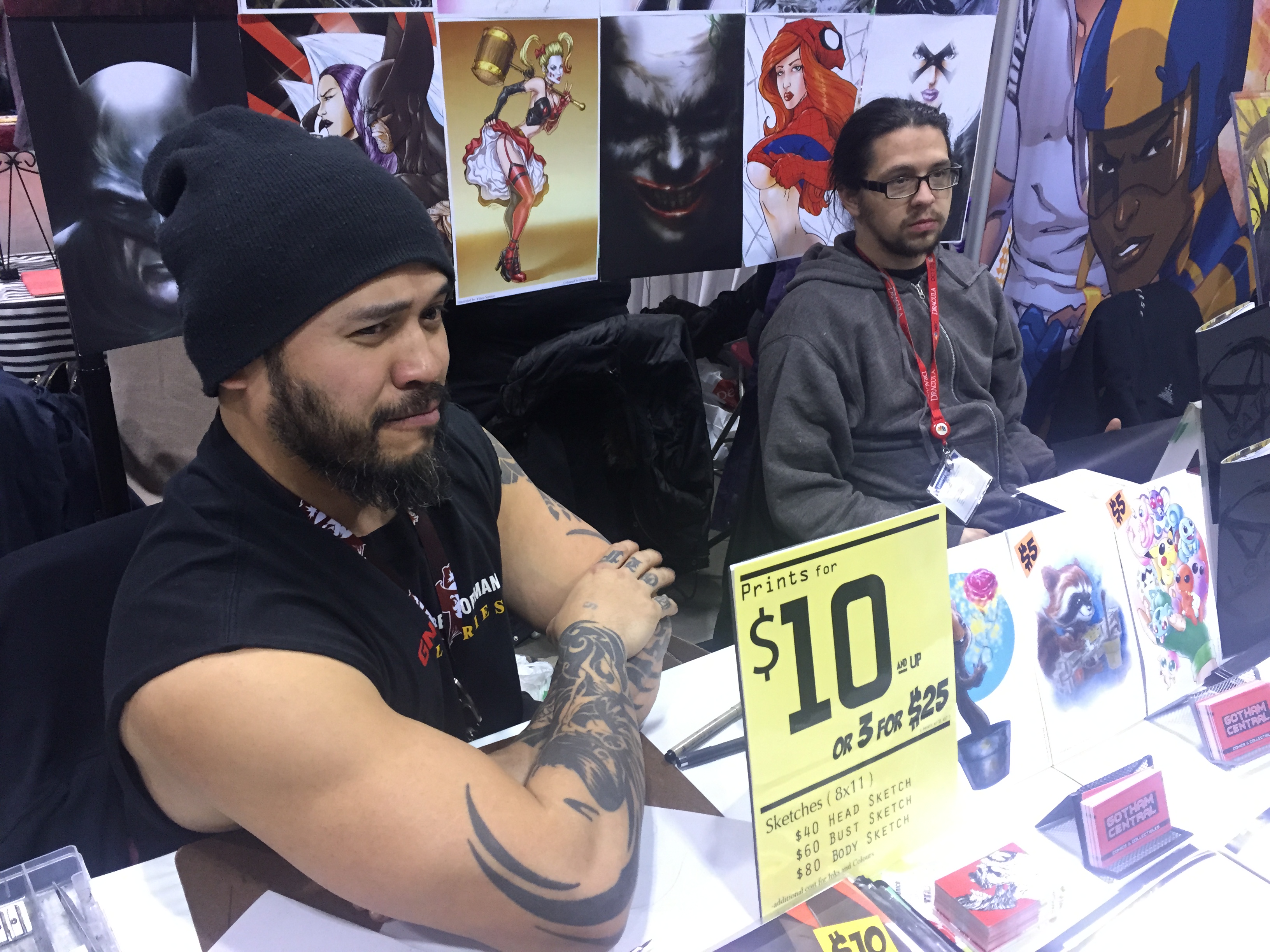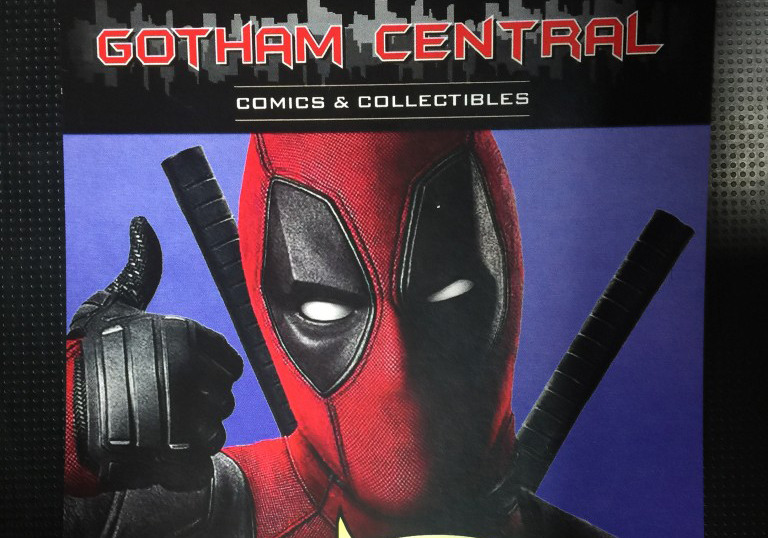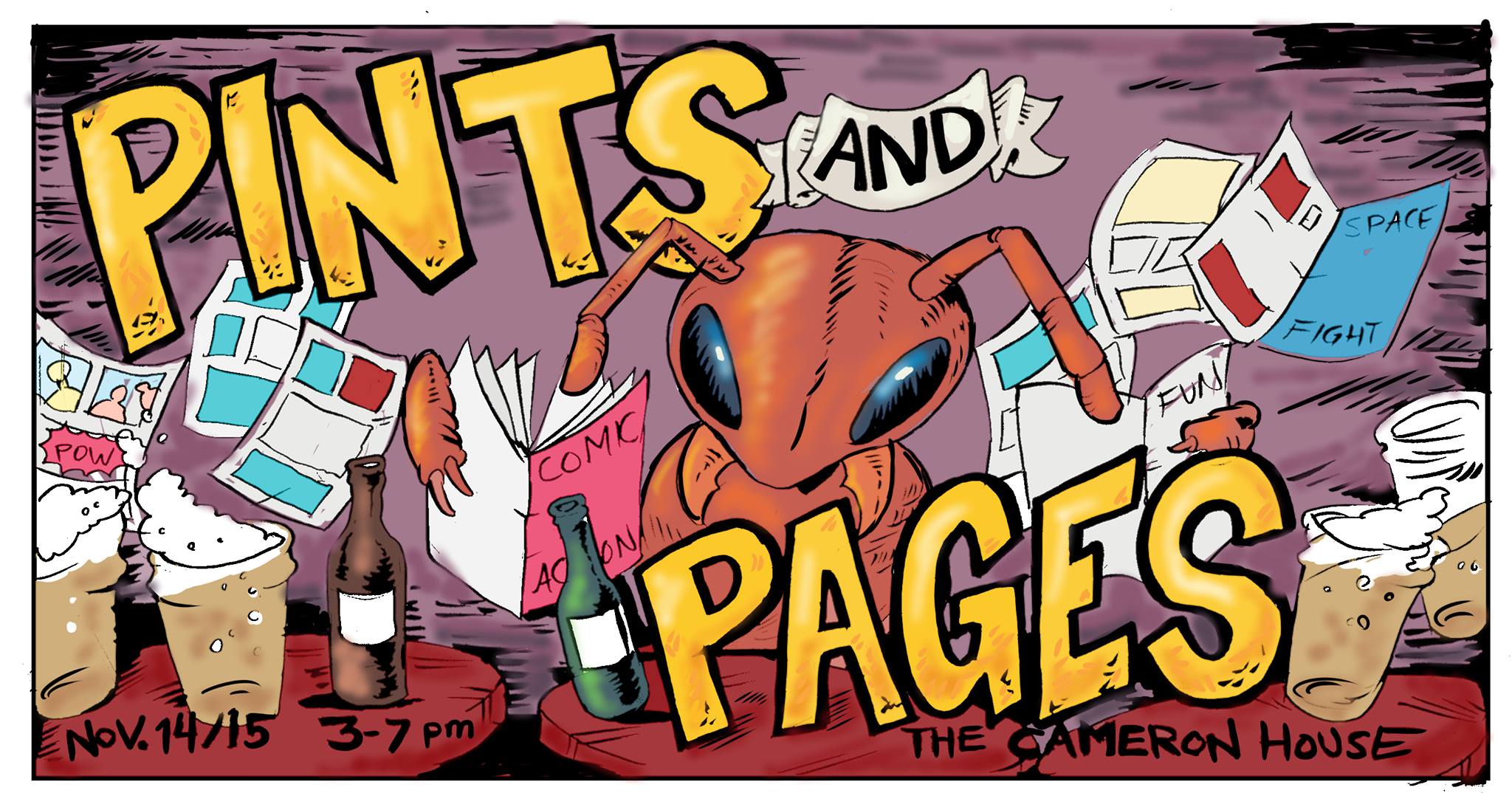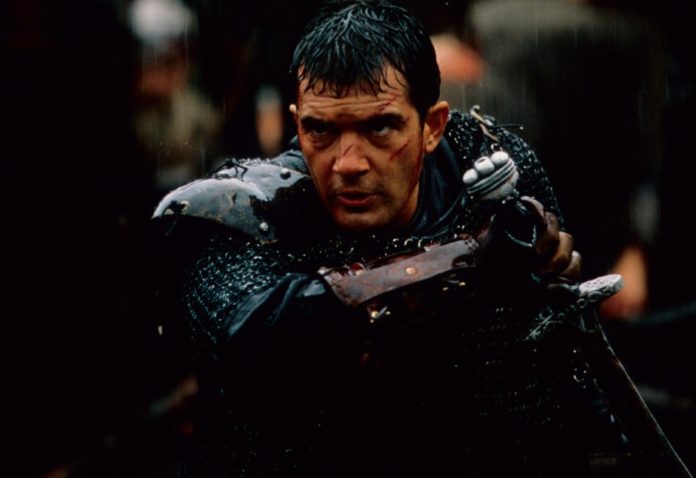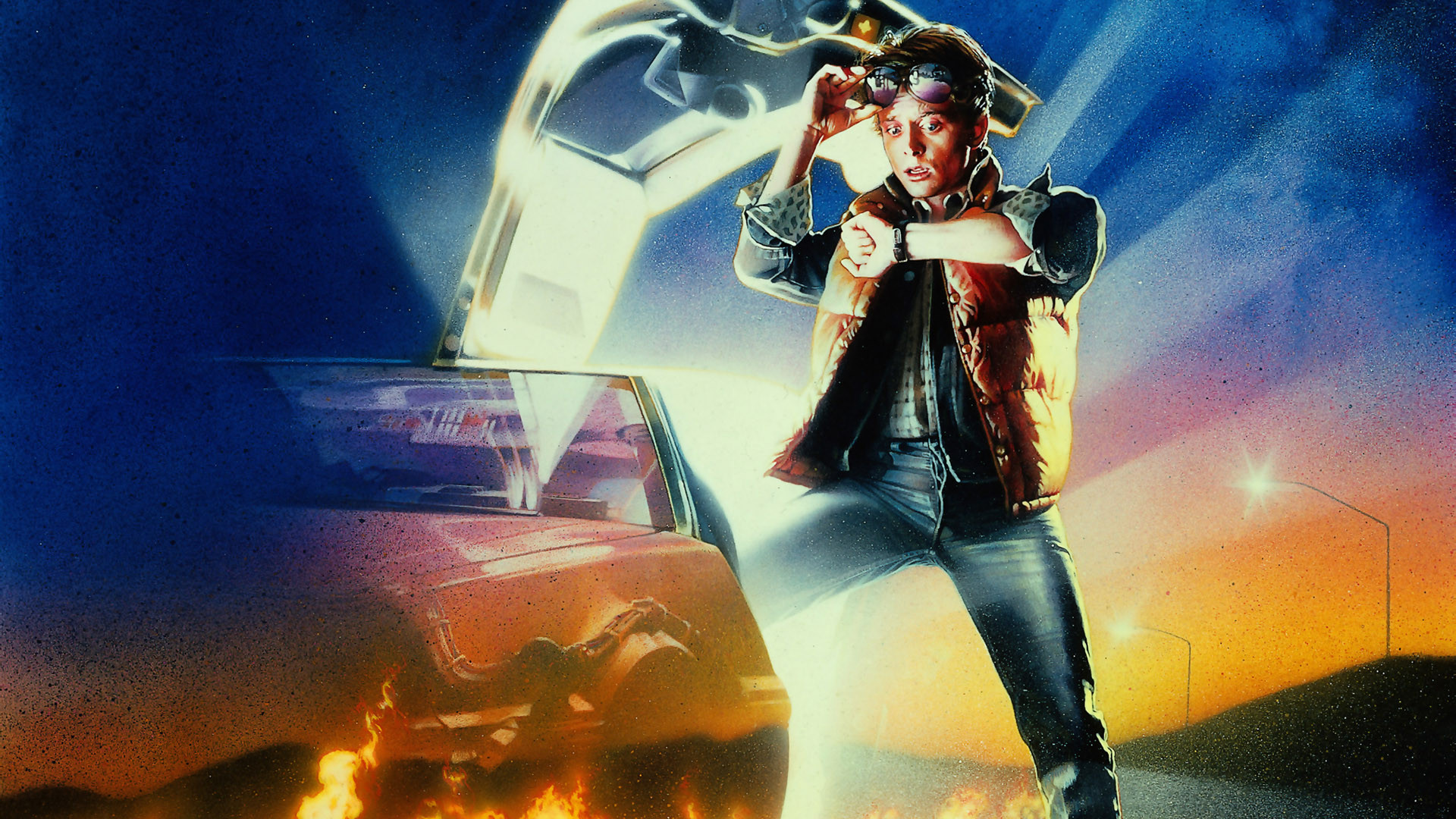Let’s go, little brother! It’s beginning.
Historical fiction is a genre that has peppered Hollywood since its inception and covered pretty much every era – pre-historic times (Quest for Fire, 10,000 B.C.), antiquity (Gladiator, Alexander, Spartacus), Middle Ages (Excalibur, Kingdom of Heaven, A Knight’s Tale), The Renaissance (The Seven Samurai, Elizabeth, Black Robe), The Industrial Era (Last of the Mohicans, Rob Roy, Brotherhood of the Wolf), and the 19th Century (War and Peace, The Count of Monte Cristo, 12 Years a Slave). This is by no means a complete list, but you get the idea. The films are based on historical events and famous people, some strive to be as accurate as possible while others are fictionalized stories based on an actual person and their deeds. Some even manage to combine fact with fiction in their fiction, such is the case with The 13th Warrior (1999) directed by John McTiernan.
Based on the novel Eaters of the Dead by Michael Crichton and a loose retelling of the tale of Beowulf, The 13th Warrior stars Antonio Banderas as real life Arabic traveller Ahmad ibn Fadlan, an educated Arab courtier who is sent to barbarian lands as punishment for sleeping with a noble’s wife. Travelling with Melchisidek (Omar Sharif), their caravan is saved from Turkic raiders by Buliwyf (Vladimir Kulich) and his Norsemen. Ahmad and Melchisidek take refuge at their settlement on the Volga River, and communications are established through Melchisidek and Herger (Dennis Storhøi), a Norseman who speaks Latin.
Ahmad is then recruited by an oracle to serve as the thirteenth member of the group who answer a call for help from a far-away Nordic king, which is under attack from the Wendol. More bookish than swordsman, Ahmad ibn Fadlan narrates his adventure and his growing respect for the barbarians around him.
Things weren’t so rosy from the outset; the Norsemen see Ahmad as a curiosity and cheerfully insult him, confident he doesn’t understand them. The tables are turned in an excellent montage showing Ahmad learning the language and startling them with his reply. This is a marvellous sequence; cut scenes are used as the men around the campfire move from full-on-Norwegian to mostly-Norwegian-with-bits-of-English to mostly-English (in place of the protagonist’s Arabic). McTiernan uses repeat cuts here, zooming in on the Norsemen’s mouths to show Ibn Fadlan’s focus.
Michael Livingston, in his article Medieval Matters: The 13th Warrior and Language Barriers on tor.com, writes there were a lot of reviewers who complained that one cannot learn a language so quickly. “To that,” he writes, “I say that no, apparently you can’t. But some folks over the course of a week of immersion really can pick up more than enough to get by.” Let’s also remember that Ahmad is an educated man and poet who is literate, as established at the film’s beginning, so the story logic is still in the ballpark of possibility. And at the very least, we know McTiernan and the filmmakers are paying attention to the problem of language in this story.
Historical mistakes aside, The 13th Warrior is a fun and well-made film with great visuals, exciting action sequences, enjoyable characters, and a good story. Not everyone shares that sentiment, however. Roger Ebert wrote in his review that the merging of Ahmad’s real life story and the Old-English epic Beowulf was left lacking; “At some point early in the production, it was apparently determined that endless scenes of long-haired Vikings in sword fights would be more interesting than the telling of these stories.” Rotten Tomatoes ranks it at 33% fresh, with the critics’ consensus as, “Atmospheric, great sets and costumes, but thin on plot”. Conversely, Lisa Schwarzbaum of Entertainment Weekly rated it A− and called it “the most unexpectedly audacious, exhilarating, and wildly creative adventure thriller I have seen in ages”. And I agree.
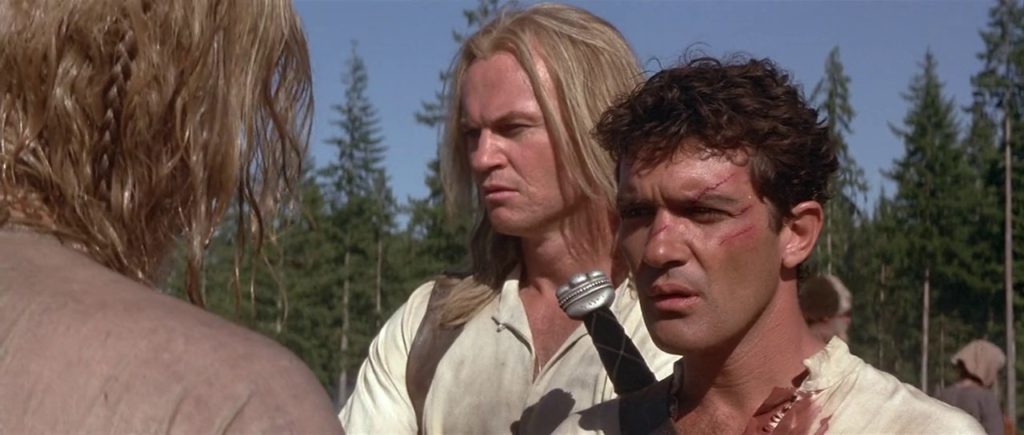 McTiernan had a solid resume behind him before directing The 13th Warrior; remember, this is the guy who made Predator, Die Hard, The Hunt for Red October, Medicine Man, Last Action Hero, Die Hard with a Vengeance, and The Thomas Crowne Affair. McTiernan knows how to shoot action; Ian Nathan of Empire writes “McTiernan, obviously in a mood for experimentation, shoots much of the furious action with handheld cameras giving the movie a vital, realistic feel, which, mixed with the Canadian vistas that stood in for Northern Europe, the fantastically grim art direction and leather clad hunks, makes for a great looking movie.” At the same time, however, Nathan indicts the film for underwhelming fight choreography; “the series of should-be-awesome battlefield confrontations are bitty and uninventive and nowhere near gory enough.” Part of that might boil down to choice of fight and stunt co-odinator, the special effects people, and of course budget.
McTiernan had a solid resume behind him before directing The 13th Warrior; remember, this is the guy who made Predator, Die Hard, The Hunt for Red October, Medicine Man, Last Action Hero, Die Hard with a Vengeance, and The Thomas Crowne Affair. McTiernan knows how to shoot action; Ian Nathan of Empire writes “McTiernan, obviously in a mood for experimentation, shoots much of the furious action with handheld cameras giving the movie a vital, realistic feel, which, mixed with the Canadian vistas that stood in for Northern Europe, the fantastically grim art direction and leather clad hunks, makes for a great looking movie.” At the same time, however, Nathan indicts the film for underwhelming fight choreography; “the series of should-be-awesome battlefield confrontations are bitty and uninventive and nowhere near gory enough.” Part of that might boil down to choice of fight and stunt co-odinator, the special effects people, and of course budget.
Filmsite.org reported “the disastrous film was delayed repeatedly (over a year and a half since its production in 1997) due to poor test screenings, choppily re-edited (with the removal of tedious subplots) with some additional scenes re-shot by an uncredited Crichton, and then released in the late summer of 1999 without much fanfare. It was a loud film, in part due to Jerry Goldsmith’s crashing and wailing score, and even with strong overseas box-office, it didn’t recoup its costs.” While I agree The 13th Warrior isn’t the greatest film ever made, at the same time it doesn’t have to be. It only has to be entertaining for me, and a few on the staff of Comix Asylum who enjoy it too. Sometimes too much studio interference doesn’t help a film either (re: Justice League).
At the end of the day, all films come down to personal taste. I know what you are thinking – how can anyone then agree on anything? Think of it as going to the buffet; sample a little bit of everything and go back to the ones you enjoy most.
That’s the real takeaway here, folks. I merely write about the films I like and not worry about the ones I don’t. Makes for a more enjoyable day, and The 13th Warrior is an enjoyable action romp when one doesn’t need to think hard and contemplate about life, the universe and everything.



